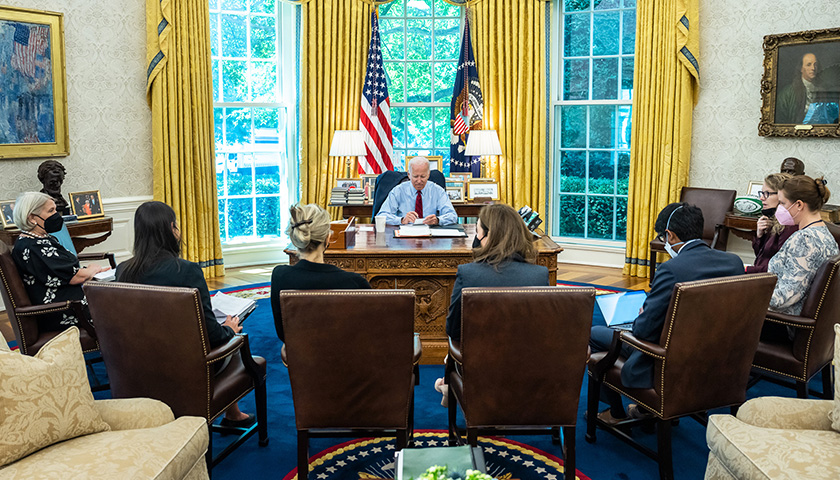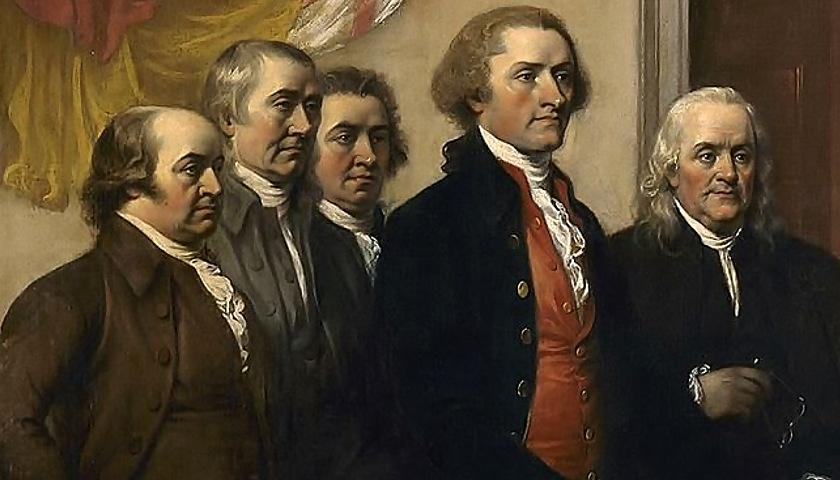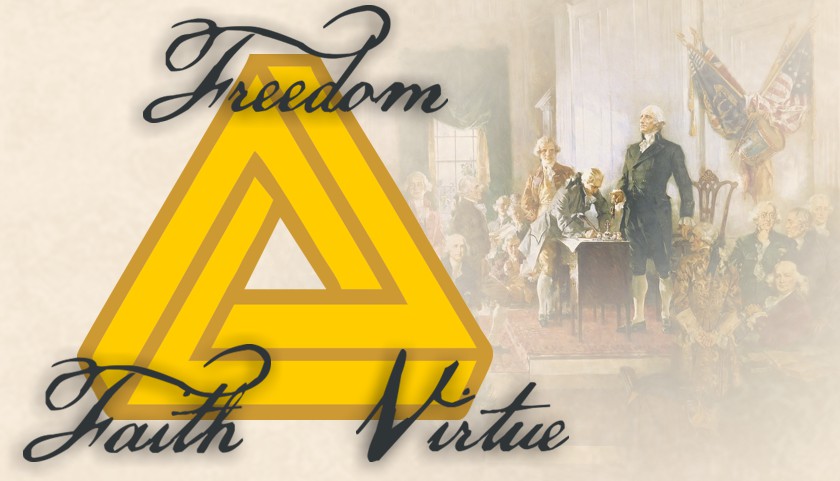Wednesday morning on The Tennessee Star Report, host Michael Patrick Leahy welcomed American Classical Education Principal Philip Schwenk in studio to discuss how a classical education will help children develop the important sense of purpose through virtue.
Read the full storyTag: Virtue
Commentary: With a Lack of Empathy, Disregard for Social Norms and Rules, and Aggressive Tendencies, Is the Democratic Party Sociopathic?
Parties from principle, especially abstract speculative principle, are known only to modern times . . . what madness, what fury can beget such unhappy and such fatal divisions? . . . This principle, however frivolous it may appear, seems to have been the origin of all religious wars and divisions. As no party, in the present age, can well support itself without a philosophical or speculative system of principles annexed to its political or practical one, we accordingly find, that each of the factions into which this nation is divided has reared up a fabric of the former kind, in order to protect and cover that scheme of actions which it pursues.
That profound sentiment comes right from the lips of the father of the Scottish Enlightenment himself, David Hume, circa 1742. It is chock full of insight for our own times. And the practical reason of that era formed the background context for the American founding, much as Scotland itself was the origin of the modern era by inventing, law, economics, science, technology, medicine and unleashing the power of the market.
Read the full storyCommentary: America’s Gun Culture Cultivates Civic Virtue
by Aaron Tao Many people are often surprised to learn that I am a gun owner and firm defender of the Second Amendment. After all, I, a first-generation Chinese-American immigrant, do not fit the stereotype of the typical American gun owner. Of all of America’s cherished freedoms, the natural and unalienable right of self-defense, recognized and protected (not granted) by the Second Amendment, took me the longest to fully embrace. But as an open-minded rationalist, the lessons of history and statistical research proved overwhelming (not to mention the sheer fun of learning the basic operations and mechanics of firearms) and eventually helped me understand why tens of millions of my fellow Americans treasure their right to keep and bear arms. Cultivating Civic Virtue From the colonists winning independence from Great Britain to African-Americans vindicating their civil rights, the role of the gun is inseparable from American identity. The gun is the ultimate multipurpose tool that empowers its user with the means to put food on the table, as well as preserve one’s life, whether against common street criminals or government tyranny. The philosophical underpinnings and lived experiences that shaped American gun culture all matter (and reinforce each other), but I want to focus on one aspect in particular: the cultivation of civic virtue. Owning and shooting a gun…
Read the full storyCommentary: A Great Civic Awakening to America’s ‘Founding Virtues’
by Annie Holmquist When it comes to the direction of society Americans (surprisingly) agree: things are not getting better. That’s the conclusion one quickly draws from a recent Pew Research report which asks what America will look like in 2050. As the chart below shows, Americans think the country will be less important on a global level, the gap between socio-economic classes will grow, and the country will be more divided politically. Dig deeper and the reason for such pessimism becomes clear: Americans recognize that major pillars of society are crumbling and will continue to do so in the next several decades. The following stats give a small glimpse of this realization: 37 percent of Americans believe work will decline due to the rise of robots 44 percent of Americans think standard of living will decline 46 percent of Americans think childbearing will diminish 50 percent of Americans think religion will become less important 53 percent of Americans think marriage will become less prevalent 72 percent of Americans are concerned about financial stability in retirement It’s depressing. As I read these pessimistic views, I had a sense I had heard them before. Then I remembered. In his 2012 book, Coming Apart, sociologist Charles Murray…
Read the full storyCan Political Freedom Exist Without Virtue? America’s Founders Didn’t Think So
by Becky Akers America’s Founding Fathers were a contentious lot, disagreeing about everything from the need for a Bill of Rights to the merits of skinny-dipping “near the Bridge … whilst …Ladies of the first fashion in the neighbourhood, are passing over it…” But they spoke unanimously on one topic: the requirement for a moral citizenry if the country were to remain politically free. Once a people abandons virtue, the Founders insisted, it plummets into tyranny. Charles Carroll, who among other feats signed the Declaration of Independence, warned, “Without morals a republic cannot subsist any length of time; they therefore who are decrying the Christian religion, whose morality is so sublime & pure, … are undermining the solid foundation of morals, the best security for the duration of free governments.” Another signer, Richard Henry Lee, concurred: “It is certainly true that a popular government cannot flourish without virtue in the people.” And that Founder of Founders, George Washington, advised, “Of all the dispositions and habits which lead to political prosperity, religion and morality are indispensable supports. … The rule, indeed, extends with more or less force to every species of free government.” Does it? Why? What so inextricably binds…
Read the full storyConstitution Series: The Golden Triangle of Freedom
This is the eleventh of twenty-five weekly articles in The Tennessee Star’s Constitution Series. Students in grades 8 through 12 can sign up here to participate in The Tennessee Star’s Constitution Bee, which will be held on September 23. A remarkable aspect of the Constitution of the United States is that since its ratification in 1789 the American people have, for the most part, viewed it as a covenant agreement between themselves and the national government. It is a powerful document not simply because of the words it contains, but because the people have freely chosen to be governed by those words. Words written a parchment or typed into an I-phone have no impact unless they are accepted within a common belief system. This why “the rule of law,” particularly as it has developed here in the United States, is so central to the development and growth of a vibrant and dynamic society where individual freedom flourishes. In America, we call this freedom “constitutional liberty.” But, as Ronald Reagan famously said, “freedom is never more than one generation away from extinction.” The Founders knew this, and recently a Chinese-born English scholar who resides in America expressed in very…
Read the full story





